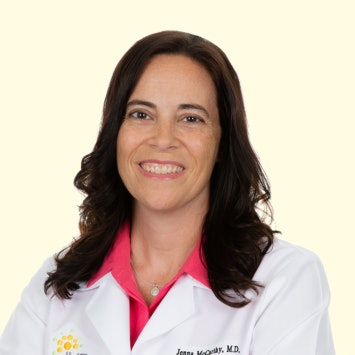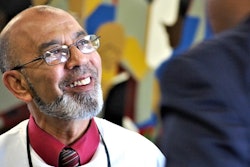Hopeful parents in Alabama are watching and waiting for Gov. Kay Ivey’s signature after Alabama’s legislature pushed through bills meant to protect in vitro fertilization (IVF). The two bills, from both the House and Senate, were introduced less than two weeks after the Alabama Supreme Court ruled frozen embryos were children, making their destruction, a common byproduct of the IVF process, illegal.
As a result of the ruling, the University of Alabama Birmingham (UAB), the largest hospital in the state, and other regional clinics put their IVF treatments on pause. Sean Tipton, chief advocacy and policy officer for the American Society for Reproductive Medicine, called the ruling and its impact on patients “devastating.”
 Dr. Jenna McCarthy, a board-certified reproductive endocrinologist at IVFMD.
Dr. Jenna McCarthy, a board-certified reproductive endocrinologist at IVFMD.
But experts agree that it isn’t just IVF patients who might suffer thanks to this ruling. Regional medicine as a whole could also take a hit, as medical students might decide to pursue fertility studies in other states.
“It’s one of the things we were concerned about, that [the ruling] could have an impact on medical students in residence, not just in Alabama but other places, even though we know each state is different,” said Dr. Jenna McCarthy, a board-certified reproductive endocrinologist at IVFMD in Jupiter, FL. “We want other young, brilliant minds to continue into reproductive endocrinology and infertility.”
IVF is a costly procedure that can take weeks to months to complete, with no guarantee of pregnancy at the end. According to 2021 data from the Centers for Disease Control and Prevention (CDC), only about 27% of IVF cycles in that year resulted in pregnancy, and not all those pregnancies lasted to term.
“IVF is a numbers game,” said McCarthy, which is why multiple embryos are used in a patient’s care. “There may be a misconception that creating a high number of embryos is unnecessary, but in reality, it’s the right number of embryos for us to create the family [patients] have been dreaming of.”
Outside of a human body, embryos have no chance of becoming a future child. While estimates vary, the science has shown that only 30-50% of fertilized embryos progress into what’s called a blastocyst, the critical stage of development that means the embryo has a chance to become a viable fetus once implanted in the parent. Chances for a successful pregnancy lessen as a patient ages.
“The quickest growth in pregnancy in an age group is in women above age 40, while the younger population is having fewer and fewer kids,” said Dr. Norbert Gleicher, an infertility specialist at the Center for Human Reproduction in New York City. “At least in some women, fertility is a time-dependent concept. The earlier they are treated and pregnant the better.”
For older IVF candidates, Gleicher said that a few weeks or months pause in treatment could mean that patients must start the process over from the beginning.
While Gleicher said that he cannot understand the Supreme Court’s ruling, he does understand why UAB and other fertility treatment clinics paused their treatments, despite Alabama Attorney General Steve Marshall saying that he had “no intention of using the decision as a basis for prosecuting IVF families or providers.”
Tipton said that Marshall’s comment should “be taken with a grain of salt.”
“Marshall says that but, what about the next Attorney General?” asked Tipton. “What will they say?”
 Nichole Huberfeld, Edward R. Utley professor of health law at the School of Law, the School of Public Health, and co-director of the Program on Reproductive Health at Boston University.
Nichole Huberfeld, Edward R. Utley professor of health law at the School of Law, the School of Public Health, and co-director of the Program on Reproductive Health at Boston University.
“I think health care providers are naturally risk-adverse, and that serves them in a number of ways. They don’t want patients to be harmed, but it also makes them extra cautious when they don’t know what the law means,” said Huberfeld. “We see it time and again in the wake of the Dobbs decision.”
The Supreme Court’s ruling in Dobbs vs. Jackson Women’s Health Organization on June 24, 2022 has opened the door for states like Alabama to enact anti-abortion legislature.
“States that align on policy questions learn from one another how to proceed down a path they were thinking about but hadn’t pursued. It’s possible other states might feel inspired [by this ruling.] It probably will aid in efforts to boost the legal protections for fetal life in some states,” said Huberfeld. “But IVF is tricky—you can’t assume that because a person is anti-abortion, they are anti-IVF.”
The criminalization of abortion has already had an impact on reproductive endocrinologists, said Huberfeld. Only time will tell how that impact will trickle down to medical student residency placements.
Liann Herder can be reached at [email protected].





















